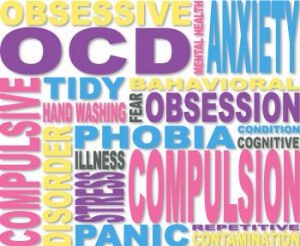When trying to find help for OCD, your primary goal is to find a professional who has the skill to make both an accurate diagnosis and recommend appropriate treatment for OCD. With OCD in particular, we know that this can be a stressful process. This aim of this brief blog post is to help you or a loved one become familiar with—and avoid—a few common missteps.
Problems Interfering With Treatment
There are several problems that we have found to interfere with an effective course of treatment for OCD. First, misdiagnosis continues to be an issue. Sufferers are sometimes unaware that they have OCD, but know that there is something they need help with. Second, the sufferer may be stuck in a ritual cycle that they do not know what to do about. They may also be too afraid to stop the rituals, and may avoid treatment because the rituals provide a feeling a safety. Third, the sufferer may be aware that they have OCD but find it too difficult or embarrassing to admit their specific obsession. The list of possible content for OCD is essentially endless. A sufferer’s unique content is produced by an able imagination—often the sufferer’s creative nature finds illogical but powerfully anxiety-inducing fears. It is not uncommon for the OCD content to present as uncomfortably odd or unreasonable, causing the sufferer not only anxiety but embarrassment.
The reasons mentioned above discourages many individuals from seeking treatment. As a result, it can take years to receive an appropriate diagnosis and then additional years to find an effective treatment. This is not an exaggeration: it can take up to 14-17 years from onset of symptoms to finding appropriate treatment. If you think you may have OCD, you can start by reviewing MSAM’s page on OCD and treatment options, or another reputable site.
Problems Finding a Therapist
Finding the appropriate treatment for OCD may have its difficulties as well. Below are a couple of issues you may encounter finding a therapist. First, while the number of OCD-treating professionals is growing, at present there are simply too few therapists who have specific training or adequate experience treating OCD.
Most psychotherapists practice as generalists treating a wide range of mental health problems. If you are using your insurance your provider may say they have an OCD specialist. I recommend that you speak with the individual therapist and find out their experience. Ask how many and what kind of OCD cases they have treated.
This is important because, second, OCD treatment requires somewhat different approaches from other psychological disorders. A generalist approach is often not sufficient. Working with OCD, we find that the therapist must understand the specifics of the disorder, and apply empirically-proven treatment strategies. A generalist psychological approach is typically supportive in nature, and can complicate the treatment of OCD by providing reassurance. This reassurance becomes fuel for the continuation of OCD rituals.
More specifically, a supportive approach often utilizes reassurance in an effort to be compassionate. This reassurance is aimed at helping an individual feel better in the short-term. But in the final analysis it stalls their ability to get better in the long-term. Compassion for a person suffering with OCD means helping them face their worst fears, and learning to cope with that fear.
Specialized OCD Treatment is Recommended
OCD treatment is specialized, but it is not necessarily complex. It is not beyond the grasp of either the general clinical practitioner or sufferer. The first-line treatment for OCD is exposure response prevention (ERP), a set of techniques which help suffers learn to cope with their fear. The specialist, then, must understand and have experienced the counter intuitive nature of OCD though. They need to be skilled in helping a sufferer live with significant anxiety.
Unfortunately, it isn’t common knowledge the OCD requires a specialized treatment. In order to have a good treatment outcome it is imperative to find a person who specializes in the treatment of OCD, and who has significant experience working with sufferers.
Oftentimes, especially in the beginning, an OCD sufferer is not aware of the unique nature of their disorder. In desperation, they will commit to any form of treatment for hope of improvement and relief. To an inexperienced person, all therapy may look alike. But, as we’ve noted, generalist approaches may only worsen the experiences of the OCD sufferer, and confound the best efforts of the therapist. Occasionally, even a seasoned therapist will take on an OCD case believing that their favorite modality can handle the problem. But sufferers working with an untrained therapist will spin their wheels doing treatments that aren’t helpful; worse, they can end up believing that they are untreatable because of repeated poor outcomes.
Getting Help
As a result of the difficulties finding and then receiving ineffective treatment, some sufferers simply give up. Please don’t give up. If you have sought treatment before to limited effect, hopefully this post will help you to restart your efforts at getting better. There are people who devote their entire practice to treating OCD and a full range of anxiety disorders, and both the AMA and APA recommend exposure response prevention as a first line psychological treatment for OCD.
If you or someone you care about has OCD please start by looking at MSAM’s resources or IOCDF.org or ADAA.org. Look for therapists in your area who are qualified and have significant experience working with OCD. Good luck, and stay strong in your search for help. It will be worth it.
Kind Regards,
Harold Kirby


